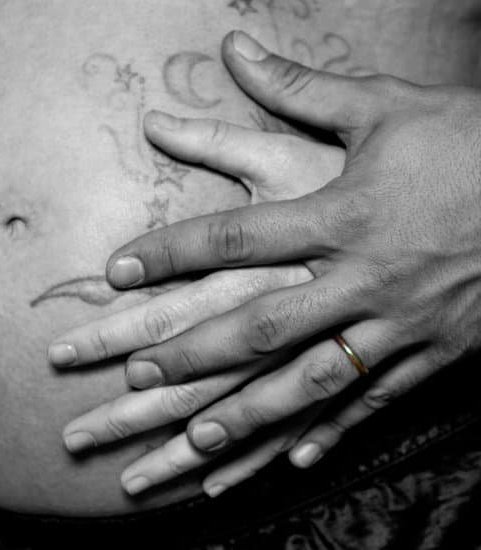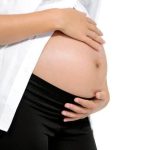Are you experiencing diarrhea early in pregnancy and wondering what could be causing it? Many women may not realize that diarrhea can actually be one of the early signs of pregnancy. In this article, we will explore the causes of diarrhea in early pregnancy, how to differentiate it from regular diarrhea, and ways to manage and cope with it. Understanding and managing this symptom is crucial for the health and well-being of expectant mothers.
Pregnancy is a life-changing experience for women, and it’s important to be aware of the early signs that indicate a possible pregnancy. Diarrhea is one such symptom that can occur in the early stages of pregnancy, but many women may not recognize it as a sign. By understanding the reasons behind diarrhea in early pregnancy, expectant mothers can better manage their symptoms and seek appropriate medical attention if necessary.
In this article, we will delve into the factors that contribute to diarrhea in early pregnancy, including hormonal changes and nutritional tips to manage this discomfort. It’s essential for pregnant women to have access to reliable information about their symptoms so they can make informed decisions about their health during this critical time. Let’s explore the causes and coping mechanisms for diarrhea in early pregnancy to ensure a healthy and comfortable gestation period.
Diarrhea in Early Pregnancy
The causes of diarrhea in early pregnancy can be attributed to a variety of factors, many of which are related to the physical and hormonal changes occurring within a woman’s body during this time. Some of the main contributors to diarrhea in early pregnancy include:
1. Hormonal fluctuations: The surge in hormones, particularly progesterone, during early pregnancy can have an impact on the digestive system, leading to increased bowel movements and potential diarrhea.
2. Increased stress and anxiety: The emotional and psychological adjustments that come with realizing one is pregnant can lead to increased stress levels, which may in turn trigger episodes of diarrhea.
3. Dietary changes: For some women, the nausea and food aversions commonly experienced in early pregnancy may lead to dietary adjustments that can unsettle the digestive system and result in diarrhea.
It is essential for expectant mothers experiencing these symptoms not to panic, as they are frequently a normal part of early pregnancy. However, if the diarrhea persists or is accompanied by other concerning symptoms such as severe abdominal pain or fever, it is important to consult a healthcare provider for further evaluation.
For women experiencing diarrhea in early pregnancy, it is helpful to consider implementing certain coping mechanisms and lifestyle changes to manage this common symptom. Here are some tips:
– Stay hydrated: Drinking plenty of water can help prevent dehydration caused by diarrhea.
– Eat small, frequent meals: Consuming smaller portions more frequently throughout the day rather than larger meals can help ease digestion.
– Avoid trigger foods: Identifying and avoiding specific foods or beverages that exacerbate diarrhea can provide relief.
– Manage stress: Engaging in activities such as deep breathing exercises, gentle yoga, or meditation can help reduce stress levels and ease gastrointestinal discomfort.
By understanding the potential causes of diarrhea in early pregnancy and implementing appropriate coping strategies, women can effectively manage this common symptom and prioritize their overall well-being during this crucial stage of their reproductive journey.
How to Differentiate Between Regular Diarrhea and Diarrhea in Early Pregnancy
When experiencing diarrhea in early pregnancy, it can be challenging to differentiate between regular diarrhea and the specific type of diarrhea associated with being pregnant. It is important to be able to distinguish between the two in order to ensure the proper care and treatment.
Duration and Frequency
Regular diarrhea often lasts for a day or two and then resolves on its own. However, diarrhea in early pregnancy may persist for a longer duration, possibly accompanied by other symptoms such as nausea, vomiting, or abdominal cramping. It is essential to pay attention to the frequency of episodes and how long they last.
Consistency and Color
The consistency and color of the stool can also provide clues about whether it is regular or pregnancy-related diarrhea. Diarrhea in early pregnancy may present as loose stools with an abnormal color, such as very pale or clay-colored stools. These differences can help in distinguishing between the two types of diarrhea.
Associated Symptoms
In addition to loose stools, other symptoms experienced alongside diarrhea can also indicate whether it is related to early pregnancy. These may include hormonal changes causing increased sensitivity to certain foods, changes in appetite, fatigue, or unusual mood swings. Paying attention to these associated symptoms can aid in determining if the diarrhea is due to early pregnancy.
The Relationship Between Hormonal Changes and Diarrhea in Early Pregnancy
During early pregnancy, hormonal changes can have a significant impact on the digestive system, leading to symptoms such as diarrhea. The surge in hormones, particularly progesterone, can cause the muscles in the digestive tract to relax, which can slow down the digestion process. As a result, this can lead to looser stools and increased frequency of bowel movements, contributing to diarrhea in early pregnancy.
Progesterone and Its Effect on Digestion
The hormone progesterone plays a crucial role in maintaining a healthy pregnancy by supporting the uterine lining and reducing the risk of miscarriage. However, it also has an impact on the gastrointestinal system. Progesterone relaxes the muscles in the intestinal walls, which can lead to food moving more slowly through the digestive tract. This slowdown in digestion can result in diarrhea and other gastrointestinal symptoms.
Impact of Hormonal Changes on Gut Bacteria
In addition to affecting muscle function in the digestive tract, hormonal changes during early pregnancy can also alter the composition of gut bacteria. This shift in gut microbiota can influence bowel habits and contribute to diarrhea. Research has suggested that changes in gut bacteria during pregnancy may be linked to gastrointestinal symptoms such as diarrhea, highlighting the intricate relationship between hormonal fluctuations and gastrointestinal health.
Understanding how hormonal changes during early pregnancy can impact digestion is essential for expectant mothers experiencing diarrhea. By recognizing these physiological shifts, women can take proactive steps to manage their symptoms and ensure a healthy pregnancy journey.
Overall, it’s important for pregnant individuals experiencing diarrhea early in their pregnancies to understand that this symptom is often normal due to hormonal changes. However, if they have concerns or are experiencing severe or persistent symptoms, seeking medical advice is always recommended to ensure both maternal and fetal well-being.
Coping Mechanisms for Diarrhea in Early Pregnancy
Dealing with diarrhea during early pregnancy can be challenging, but there are several coping mechanisms that can help alleviate symptoms and provide relief. It’s important to remember that experiencing diarrhea in early pregnancy is not uncommon, and with the right strategies, it can be managed effectively.
Here are some coping mechanisms to consider:
1. Stay Hydrated: One of the most important things you can do when experiencing diarrhea in early pregnancy is to stay hydrated. Dehydration can pose a risk to both you and your baby, so it’s crucial to drink plenty of water throughout the day. Additionally, consider consuming electrolyte-rich fluids such as sports drinks or oral rehydration solutions to replenish lost nutrients.
2. Eat Small, Frequent Meals: Instead of consuming large meals, opt for smaller, more frequent meals throughout the day. This approach can help ease the burden on your digestive system and minimize the chances of triggering a bout of diarrhea. Focus on incorporating easily digestible foods such as rice, bananas, applesauce, and toast into your diet.
3. Manage Stress: Stress can exacerbate digestive issues like diarrhea, so finding ways to manage stress during early pregnancy is essential. Consider practicing relaxation techniques such as deep breathing exercises, meditation, or prenatal yoga to help alleviate stress and promote overall well-being.
Remember that every pregnancy is unique, and what works for one person may not work for another when it comes to managing diarrhea in early pregnancy. Be sure to consult with your healthcare provider for personalized guidance and support if you are struggling with this symptom.
By implementing these coping mechanisms, you can effectively manage diarrhea in early pregnancy and focus on enjoying this special time in your life despite this uncomfortable symptom lingering around.
When to Seek Medical Attention for Diarrhea in Early Pregnancy
Diarrhea is a common digestive issue that can affect women during early pregnancy. While in most cases it may not be a cause for concern, there are certain situations where medical attention should be sought.
If diarrhea is accompanied by other symptoms such as severe abdominal pain, fever, blood in the stool, dizziness, or dehydration, it is crucial to consult a healthcare professional. Dehydration is a particularly serious risk for pregnant women experiencing diarrhea, as it can lead to complications such as preterm labor and low amniotic fluid levels.
Furthermore, if diarrhea persists for more than 2 days despite home remedies or over-the-counter medications, it is important to seek medical advice. Healthcare providers can perform necessary tests to rule out any underlying infections or conditions that may be causing the diarrhea. They can also provide guidance on safe treatment options for pregnant women.
It’s essential for pregnant women experiencing diarrhea to pay close attention to their symptoms and seek medical help promptly if they have any concerns about their condition. This proactive approach can help ensure the health and well-being of both the mother and the developing baby.
| When to Seek Medical Attention | Signs and Symptoms |
|---|---|
| Severe abdominal pain | Fever |
| Blood in the stool | Dizziness |
| Dehydration | Persistent diarrhea for more than 2 days |
Nutritional Tips to Manage Diarrhea in Early Pregnancy
During the early stages of pregnancy, some women may experience symptoms such as nausea, vomiting, and diarrhea. While it may be alarming to deal with diarrhea during this time, there are several nutritional tips that can help manage this symptom and provide relief. It is important to maintain a balanced diet and stay hydrated to support both the health of the mother and the developing fetus.
One helpful tip is to focus on consuming easily digestible foods such as bananas, rice, applesauce, and toast (BRAT diet). These foods can help firm up stools and reduce the frequency of diarrhea. Additionally, incorporating probiotic-rich foods like yogurt into your diet can help promote healthy gut bacteria and improve digestion. It is also essential to stay well-hydrated by drinking plenty of water, herbal teas, or clear broths to replace lost fluids from diarrhea.
In some cases, avoiding certain trigger foods or beverages such as spicy foods, caffeine, artificial sweeteners, and high-fat items can also help manage diarrhea in early pregnancy. Keeping a food diary and paying attention to which foods worsen symptoms can be beneficial in identifying dietary factors that contribute to diarrhea. It is advisable for pregnant individuals experiencing persistent or severe diarrhea to consult with a healthcare provider to rule out any underlying conditions and receive personalized dietary recommendations.
| Nutritional Tips | Additional Information |
|---|---|
| Consume easily digestible foods (BRAT diet) | Foods such as bananas, rice, applesauce, and toast can help firm up stools. |
| Incorporate probiotic-rich foods | Yogurt and other probiotic-rich foods can promote healthy gut bacteria. |
| Avoid trigger foods/beverages | Avoiding spicy foods, caffeine, artificial sweeteners, and high-fat items may help manage symptoms. |
| Stay well-hydrated | Drink plenty of water or clear fluids to prevent dehydration from diarrhea. |
Overall, by making mindful dietary choices and staying adequately hydrated while experiencing diarrhea in early pregnancy, individuals can better manage their symptoms and support their overall health during this crucial time.
Conclusion
In conclusion, it is crucial for individuals to understand and manage diarrhea in early pregnancy. While experiencing diarrhea during this time can be uncomfortable and concerning, it is important to recognize that it is a common symptom and typically not a cause for alarm. By understanding the causes of diarrhea in early pregnancy, individuals can differentiate between regular diarrhea and that related to pregnancy, allowing for appropriate management.
Additionally, managing hormonal changes associated with early pregnancy can help alleviate symptoms of diarrhea. Coping mechanisms such as staying hydrated, eating a balanced diet, and getting enough rest can all contribute to reducing the discomfort caused by diarrhea. However, if symptoms persist or become severe, it is essential to seek medical attention to rule out any underlying issues that may be causing the diarrhea.
Overall, understanding the importance of managing diarrhea in early pregnancy is vital for both the well-being of the expectant mother and the developing fetus. With proper knowledge and care, individuals can navigate this common symptom with confidence and ensure a healthy start to their pregnancy journey.
Frequently Asked Questions
Can Pregnancy Cause Diarrhea in First Trimester?
Yes, pregnancy can cause diarrhea in the first trimester. Hormonal changes, dietary changes, and increased stress can all contribute to digestive issues, including diarrhea, during early pregnancy.
Can Morning Sickness Cause Diarrhea Instead of Vomiting?
Morning sickness can sometimes cause diarrhea instead of vomiting. The hormonal changes and increased sensitivity of the digestive system during pregnancy can lead to both morning sickness and diarrhea as common symptoms.
What Should I Eat if I Have Diarrhea During Pregnancy?
If you have diarrhea during pregnancy, it’s important to focus on staying hydrated. Stick to bland, easily digestible foods like bananas, rice, applesauce, toast (BRAT diet), and clear liquids such as water, broths, and electrolyte drinks.
Avoid greasy or spicy foods that could further upset your stomach. Additionally, consider consulting with a healthcare professional for personalized advice on managing diarrhea during pregnancy.

Welcome to my fertility blog. This is a space where I will be sharing my experiences as I navigate through the world of fertility treatments, as well as provide information and resources about fertility and pregnancy.





